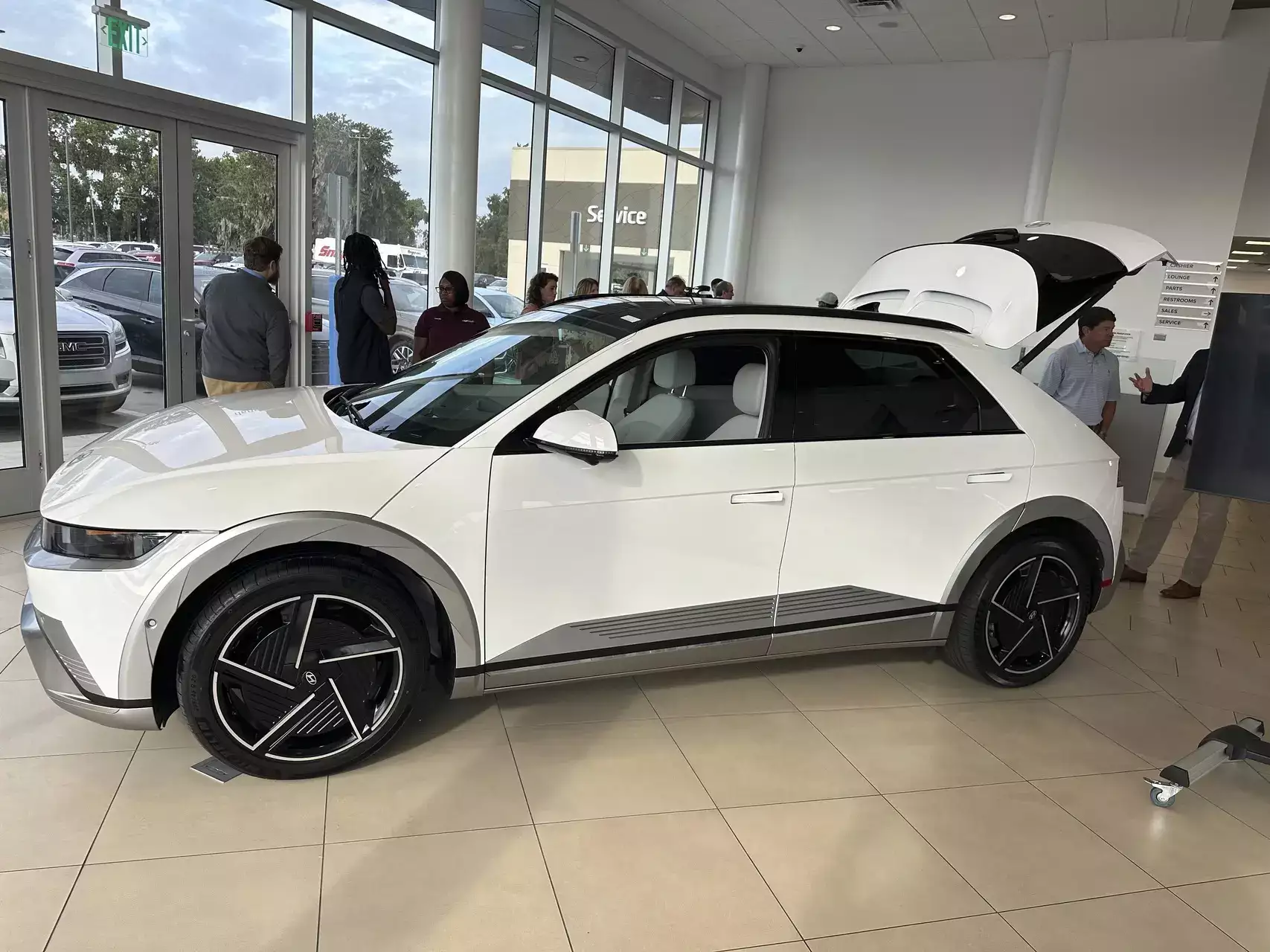
Hyundai's factory in Georgia held an "employee-focused celebration" Thursday as its first EV for commercial sale rolled off the assembly line, Bianca Johnson, spokesperson for Hyundai Motor Group Metaplant America, said in a statement provided Monday to The Associated Press.
"After validating its production processes to ensure its vehicles meet Hyundai Motor Group's high quality standards, HMGMA has started initial production of customer vehicles ahead of schedule," Johnson said.
She said a grand opening celebration at the Georgia plant is expected in the first quarter of 2025.
The South Korean automaker and battery partner LG Energy Solution plan to employ 8,500 total workers at the Bryan County site, about 50 miles (80 kilometers) west of Savannah, once the plant is fully operational. Hyundai has said it will produce up to 300,000 EVs per year in Georgia, as well as the batteries that power them.
The plant's vehicle production areas have been completed and are being staffed by more than 1,000 workers, Johnson said. Its battery-making facilities remain under construction.
The first vehicles being produced at the Georgia site are 2025 models of Hyundai's Ioniq 5 electric SUVs. Johnson said those American-made EVs will arrive at U.S. dealerships before the end of this year.
During the first half of 2024, the Ioniq 5 was America's second-best-selling electric vehicle not made by industry leader Tesla.
Hyundai broke ground on its Georgia plant in late October 2022. It's the largest economic development project the state has ever seen, and came with a whopping USD 2.1 billion in tax breaks and other incentives from the state and local governments.
Hyundai rushed to start making EVs in Georgia within two years of groundbreaking, spurred by federal electric vehicle incentives that reward domestic production.
The Inflation Reduction Act, passed in 2022 with provisions intended to combat climate change, includes a tax credit that saves EV buyers up to USD 7,500, but only on cars made in North America with domestic batteries. Though Hyundai executives complained the law was unfair, Hyundai President and Global Chief Operating Officer Jose Munoz has also said it caused the automaker to push to open sooner in Georgia.
Disclaimer: The copyright of this article belongs to the original author. Reposting this article is solely for the purpose of information dissemination and does not constitute any investment advice. If there is any infringement, please contact us immediately. We will make corrections or deletions as necessary. Thank you.





